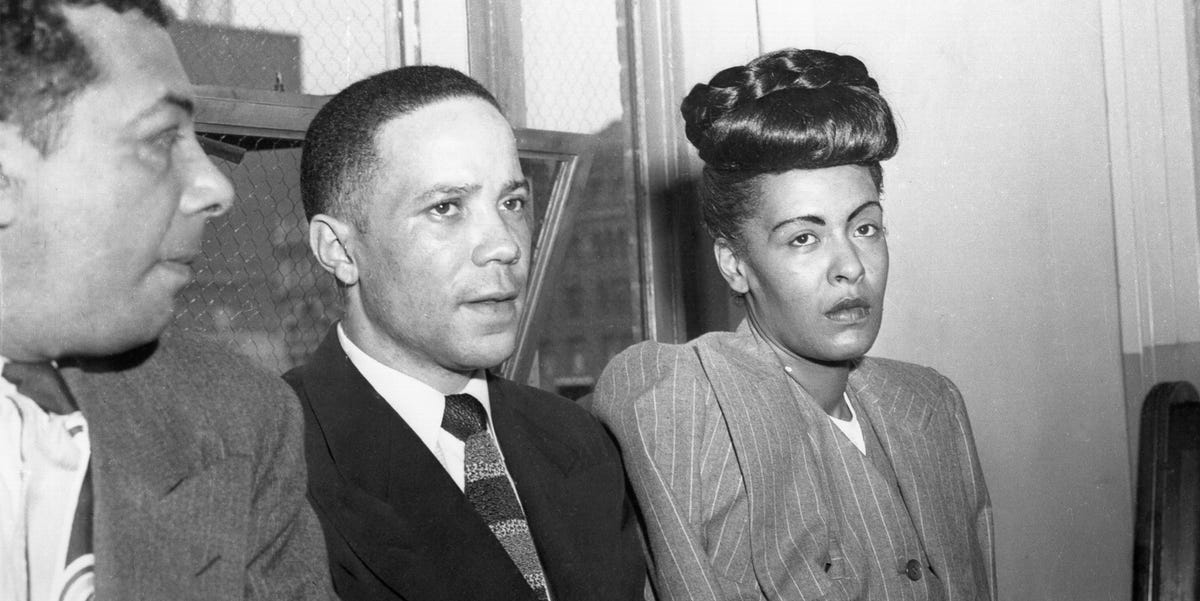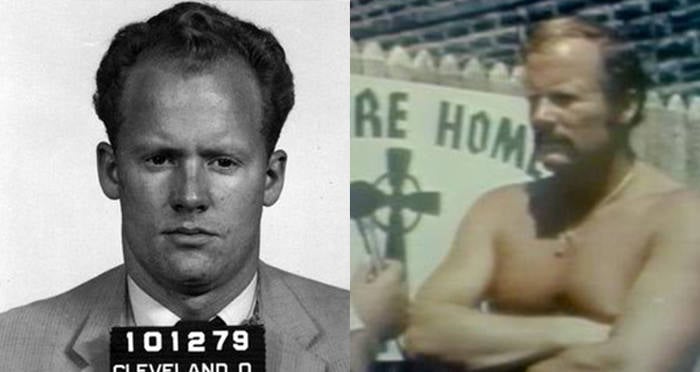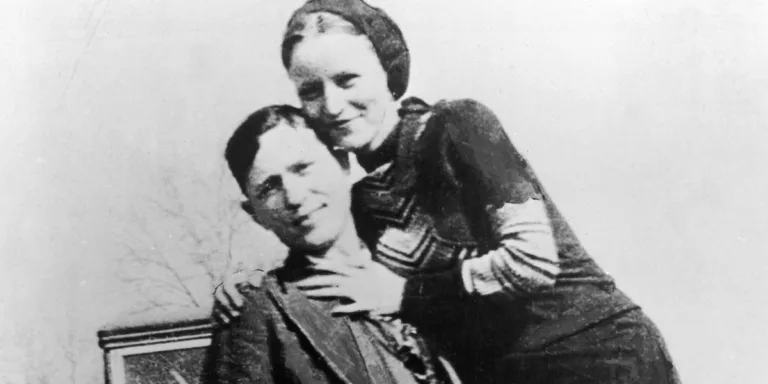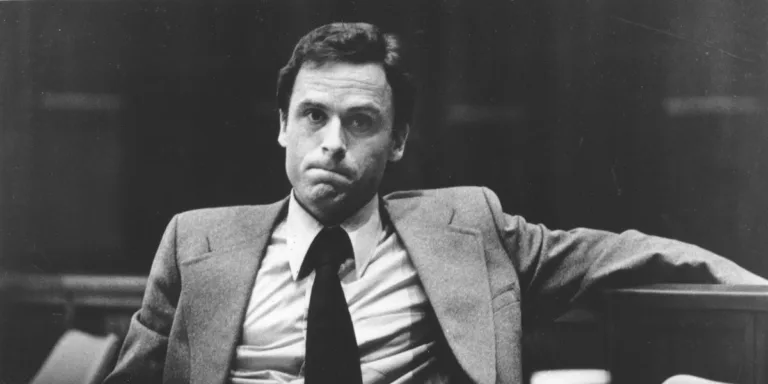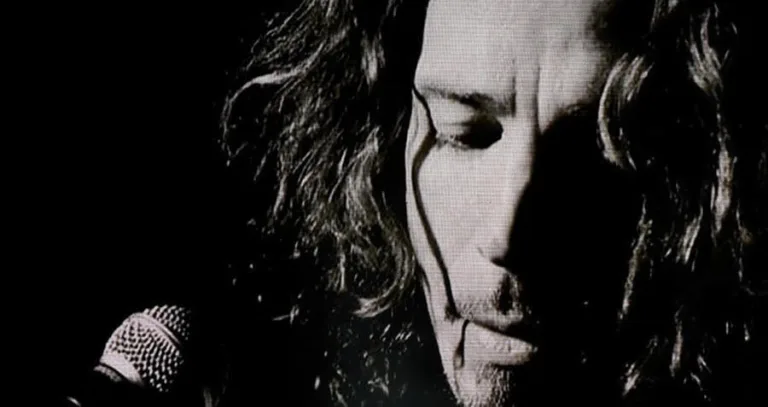Billie Holiday was a legendary jazz vocalist whose powerful voice and deeply Moving Performances Captivated Audiences Worldwide. She is best remembered for her haunting rendition of “Strange Fruit,” a song that addressed the horrific reality of lynching in America. This poignant protest anthem became an anthem for The Civil Rights Movement, solidifying Holiday’s place as a fearless voice against injustice.
However, Holiday’s life was tragically marked by persecution and hardship. Her struggles with addiction, which sadly became intertwined with her Artistic Legacy, drew the unwanted attention of The Federal Bureau Of Narcotics (FBN) commissioner Harry Anslinger. Anslinger, driven by his own prejudices and a desire to control artists who Challenged Societal Norms, viewed Holiday as a threat.
This intense scrutiny from billie holiday and drugs-obsessed authorities cast a long shadow Over Her Career, Leading To Relentless Harassment, entrapment, and ultimately, a premature death. Despite the immense challenges she faced, Billie Holiday’s music continues to resonate deeply with Audiences Today, serving as a powerful testament to her artistry and resilience.
Strange Fruit and the Fbn’s Target
“Strange Fruit,” a chilling ballad written by Abel Meeropol, became Billie Holiday’s signature song and a searing indictment of racial violence in America. The lyrics painted a vivid picture of lynchings, describing the gruesome reality of Black bodies hanging from trees like fruit on a bough. This powerful protest anthem resonated deeply with audiences during a time when lynching was rampant and often met with indifference or even celebration by White Society.
This song, however, caught the attention of Harry Anslinger, the commissioner of The Federal Bureau Of Narcotics (FBN). Anslinger, known for his racist views and fear-Mongering Tactics, saw Holiday’s success as a threat to the Status Quo. He believed that her music would incite racial unrest and undermine his efforts to control drug use in America. Anslinger viewed Holiday and her song as symbols of everything he sought To Suppress – Black voices speaking out against injustice and challenging the prevailing social order.
The Fbn, under Anslinger’s leadership, began a campaign to target Holiday, using her struggles with addiction as leverage to discredit her and silence Her Powerful Voice. This marked the beginning of a long and tragic chapter in Holiday’s life, one where she became entangled in a web of persecution orchestrated by those who sought to control and manipulate her for their own nefarious purposes.
Harry Anslinger: A Racist Agenda
Harry Anslinger, the commissioner of The Federal Bureau Of Narcotics (FBN) from 1930 to 1967, was a controversial figure whose legacy is deeply intertwined with racism and the criminalization of drug use. Anslinger believed that jazz music and its associated culture were inherently dangerous, promoting immorality and threatening the social fabric of America. He viewed Black musicians like Billie Holiday as symbols of this perceived threat, scapegoating them for societal ills and using their struggles with addiction to justify his crusade against drugs and dissent.
Anslinger’s racist ideology shaped his policies and actions. He often used inflammatory language to demonize Black people and associate them with criminality and drug use. His relentless campaign against jazz music was fueled by a desire to control and suppress Black voices, painting them as dangerous and deviant in the eyes of the public. Anslinger’s tactics included using undercover agents to infiltrate Black communities, Spreading Misinformation About Drugs, and pushing for harsher penalties for Drug Offenses, Disproportionately Impacting Marginalized Groups.
His obsessive targeting of billie holiday and drugs, driven by his racist agenda, ultimately contributed to Holiday’s downfall. Anslinger used the Fbn as a tool to silence those who challenged his authority and threatened his vision of a racially segregated and controlled society. His legacy serves as a stark reminder of the dangers of unchecked power and the devastating consequences of prejudice and discrimination.
 Gianni Versace Assassination: Unmasking the Killer
Gianni Versace Assassination: Unmasking the KillerThe Fbi’s Undercover Tactics
To achieve his goal of silencing Billie Holiday and controlling her narrative, Harry Anslinger deployed a network of undercover agents within the Fbn. These operatives infiltrated Holiday’s circle, seeking to gather information about her Personal Life, Her Musical Activities, and any connections she might have to individuals deemed subversive or dangerous by the agency. Their mission was to build a case against Holiday, using her struggles with addiction as leverage to manipulate and discredit her.
One of these agents, Jimmy Fletcher, formed a close relationship with Holiday During His Undercover Assignment. Despite growing fond of her and Recognizing Her Immense Talent, Fletcher ultimately carried out Anslinger’s orders by raiding her apartment, seizing evidence that would be used against her in court. This betrayal exposed the insidious nature of the Fbn’s tactics, demonstrating how personal relationships could be exploited for political gain and to further a harmful agenda.
The Fbi’s undercover operations were characterized by deceit, manipulation, and a disregard for Holiday’s privacy and well-being. These agents operated in the shadows, using their positions of authority to undermine her career and destroy her reputation. This relentless pursuit highlights the lengths to which Anslinger was willing to go to silence dissent and control Those Who Challenged His Power.
Holiday’s Resilience and Continued Activism
Despite the intense pressure and persecution she faced from the Fbn, Billie Holiday refused to be silenced. She continued to perform “Strange Fruit,” her powerful voice carrying a message of hope and resistance even as she battled personal demons and legal battles orchestrated by Anslinger. Her resilience in the face of adversity served as an inspiration to countless individuals who were also fighting for justice and equality.
Holiday’s activism extended beyond her music. She used her platform to speak out against racism and injustice, advocating for civil rights and challenging the societal norms that perpetuated discrimination. She understood the power of her voice and refused to let it be silenced by those who sought to control and suppress her. Her unwavering commitment to social justice solidified her legacy as a true icon of The Civil Rights Movement.
Holiday’s story is a testament to the enduring human spirit. Even when faced with overwhelming odds, she chose to fight for what she believed in, using her music and her voice to challenge injustice and inspire hope. Her resilience serves as a powerful reminder that even in the darkest of times, the human capacity for courage and Compassion Can Prevail.
Legacy of Persecution
The legacy of Billie Holiday’s persecution by the Fbn casts a long shadow over her remarkable life and career. While she achieved immense success as a musician, her story serves as a stark reminder of the dangers of unchecked power, Racial Bias, and the weaponization of drug laws Against Marginalized Individuals. Anslinger’s relentless campaign against Holiday not only destroyed her personal life but also silenced a powerful voice that dared to speak truth to power during a time of immense social upheaval.
Holiday’s case highlights the systemic injustices that continue to plague our society. The targeting of Black artists and activists based on their race, Their Beliefs, and their struggles with addiction reveals a deeply entrenched pattern of discrimination that persists even today. Her story compels us to examine the ways in which power is used to silence dissent and perpetuate inequality.
Remembering Holiday’s legacy means acknowledging the full scope of her story – both her artistic brilliance and the tragic consequences of the persecution She Endured. It calls for a continued commitment To Fighting Against Racial Injustice, advocating for social justice, and ensuring that all voices are heard and respected, regardless of their background or experiences.

